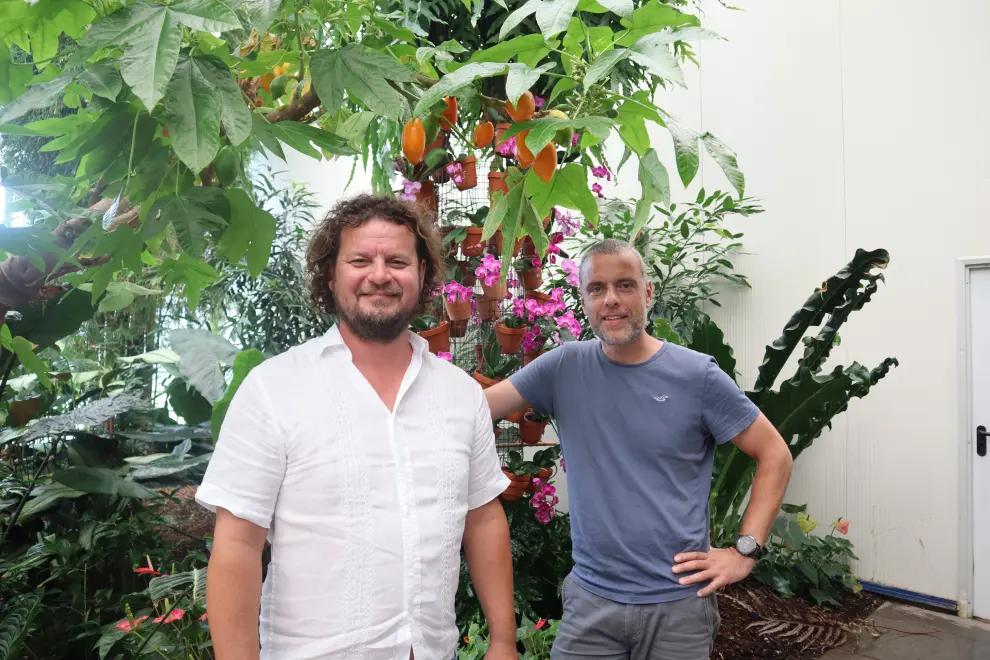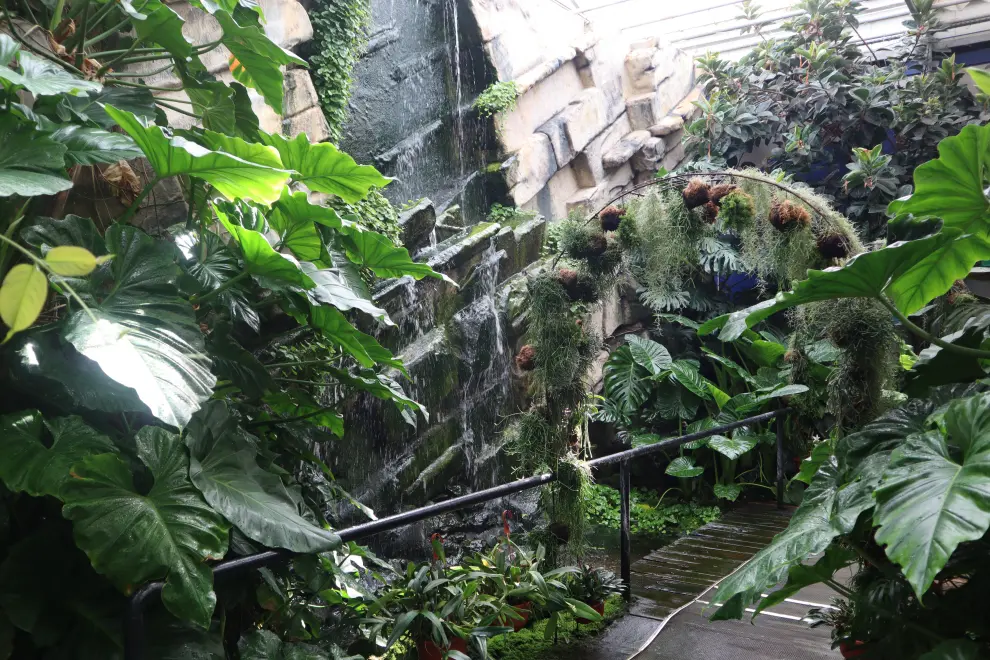Tropical island on plains of Prekmurje
Phalaenopsis orchids are the main products of Ocean Orchids. Photo: Vida Toš/STA
The north-eastern region of Prekmurje is known as Slovenia's granary, but a pair of uni friends came up with a much more exotic idea. Now, their company Ocean Orchids grows two million orchids a year in greenhouses there as one of the few such locations in Europe outside the Netherlands. Their latest product is vanilla.
Based in Dobrovnik near the Hungarian border, Ocean Orchids was founded by the local Roman Ferenčak and Tomaž Jevšnik from Velenje in 2003. The company started growing and selling Phalaenopsis orchids in 2006 and production has since spread to 40,000 square metres of greenhouses.
Ferenčak and Jevšnik met while studying agronomy in Ljubljana. They both thought it a phenomenal idea to grow plants in greenhouses, but when they visited the Netherlands they started grappling with the question why there are so many greenhouses there and virtually none in Slovenia.
Roman Ferenčak and Tomaž Jevšnik, the founders of Ocean Orchids. Photo: Vida Toš/STA
There is no clear answer why the Netherlands is the land of greenhouses. "They simply got organised and did it. And managed to create a huge industry, which is also important for the country's economy as a whole," Jevšnik told the Slovenian Press Agency.
Him and Ferenčak soon realised that Slovenia has got all the conditions for greenhouses that the Netherlands has and even more. "We have flatlands, sun, sufficient precipitation and we also have geothermal energy," Ferenčak says.
Moreover, Prekmurje is a promised land for greenhouse production logistically as well. "We are far enough from the Netherlands not to 'interfere in their business', that is we don't cover the same market. Drawing a circle around Dobrovnik with a radius of 500 kilometres, you can see how big a market we have."
Ocean Orchids generates 90% of its revenue from wholesale of ornamental plants, of which 80% through exports. Their largest markets are Romania, Bulgaria, countries of the former Yugoslavia, Hungary, Slovakia, the Czech Republic and Italy, while they also export orchids to Poland, Austria and Germany.
They generate a further 8-10% from tourism. They opened a tropical garden in 2007 to respond to the market demand; from day one their greenhouses attracted the interest of tourists who wanted to have a look inside.
Initially spanning 700 square metres, the tropical garden has been expanded to about 1,200 sq metres and serves as an incubator to grow ever new plants, from bananas to mango, and vanilla plant, the latest product they launched on the market last year.
Dobrovnik Ocean Orchids's tropical garden. Photo: Vida Toš/STA
The company has gone through a turbulent period in recent years. The last "normal" year was 2017 when they generated around €7.5 million in revenue. The next year hail destroyed their greenhouse as well as stocks.
Ferenčak says the past three years were disastrous as well. Between 2020 and 2022 their annual revenue averaged only six million euros, about one million below plans. This year they will met their target, projecting to post €7 million in revenue.
The company employs 50 people, including from Croatia. Students from the vocational school in Čakovec in Croatia have been serving an apprenticeship at the company for more than ten years, and students from the Ljubljana Biotechical Faculty do their field work there, while Jevšnik lectures at the faculty.
Ocean Orchids also prides itself on sustainability. Ferenčak says the way they grow orchids ranks them among greenhouses with the lowest carbon footprint in Europe. The reason is that they use geothermal energy to heat them. Geothermal energy is also why the company is located at the very spot.
Ferenčak says there are few greenhouses growing orchids outside the Netherlands in Europe. Apart from the one in Dobrovnik, there is one in Poland, one or two in Italy and three in Germany. All these greenhouses do not make up for even 10% of the entire European orchid growth volumes.
The Ocean Orchids owners plan to consolidate the company in the coming years to stabilise it financially after the turbulent period. Their next project will be drilling a reinjection well.
"We've been planning this for two years and hope to realise it by the end of next year. About a kilometre away from our location we will drill a well to return the thermal water we used for heating back underground instead of discharging it into the River Ledava," says Ferenčak.




